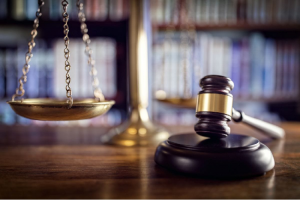
01 Jun Digital Markets Law: for fair and open digital markets
The Digital Markets Law establishes a set of strictly defined criteria to consider a large online platform as a “guardian of access”. In this way, the Law focuses on the problem of large systemic platforms.
These criteria are met when a company:
- It has a strong economic position, a significant impact on the internal market and activities in many EU countries
- has a strong intermediary position, which allows it to connect a wide user base with a large number of companies
- has (or is about to have) a strong and lasting position in the market, which means that it is stable over time if the company has met the two criteria above in each of the last three years.
What benefits does the Digital Markets Law bring?

Business users that rely on gatekeepers to offer their services in a single market will have a fairer business environment.
Innovators and emerging technology companies will have new opportunities to compete and innovate in the environment of online platforms without abusive conditions that limit their development.
Consumers will be able to choose between more and better services, they will have more opportunities to switch providers if they wish and they will enjoy direct access to services, for which they will pay fairer prices.
Gatekeepers will retain all their opportunities to innovate and offer new services. The only difference is that they will not allow the subject to unfair practices. To obtain undue advantages, for the companies and user clients that depend on them.
What does this mean for gatekeepers?
The new regulations will establish obligations for access guards: what they must do on a day-to-day basis, and what they cannot do.
Example of what they should do: the access guardian platforms should
- Allow third parties to interact with the gatekeeper’s own services in some specific situations
- Allow their user companies to access the data they generate when using the gatekeeper platform
- Provide companies that advertise on its platform with the necessary tools and information for advertisers and publishers to conduct their own independent verification of ads hosted by the gatekeeper
- Allow your user companies to promote their offers and conclude contracts with their customers outside the platform of the gatekeeper.
How will the Commission ensure that this instrument remains adapted to a rapidly evolving digital sector?
To ensure that the new gatekeeper rules keep pace with the fast pace of digital markets, the Commission will carry out market research. This will allow you to:
- classify a company as a gatekeeper
- where appropriate, dynamically update the obligations of gatekeepers
- provide corrective measures to deal with systematic infringements of the regulations of the Digital Markets Law.
What are the next steps?
Once formally adopted, the Regulation on the Digital Markets Law will be directly applicable throughout the EU and will be applicable six months after its entry into force.
What consequences will non-compliance have?
In case of systematic breach of the obligations contemplated in the Law. And aftermarket research, additional corrective measures may be imposed on the access guards. These measures must be proportionate to the offense committed. For example, structural or behavioral measures, such as the divestiture of (parts of) a company.
You may also be interested in TOP 5: BEST BOOKS ON THE LAW OF ATTRACTION


No Comments